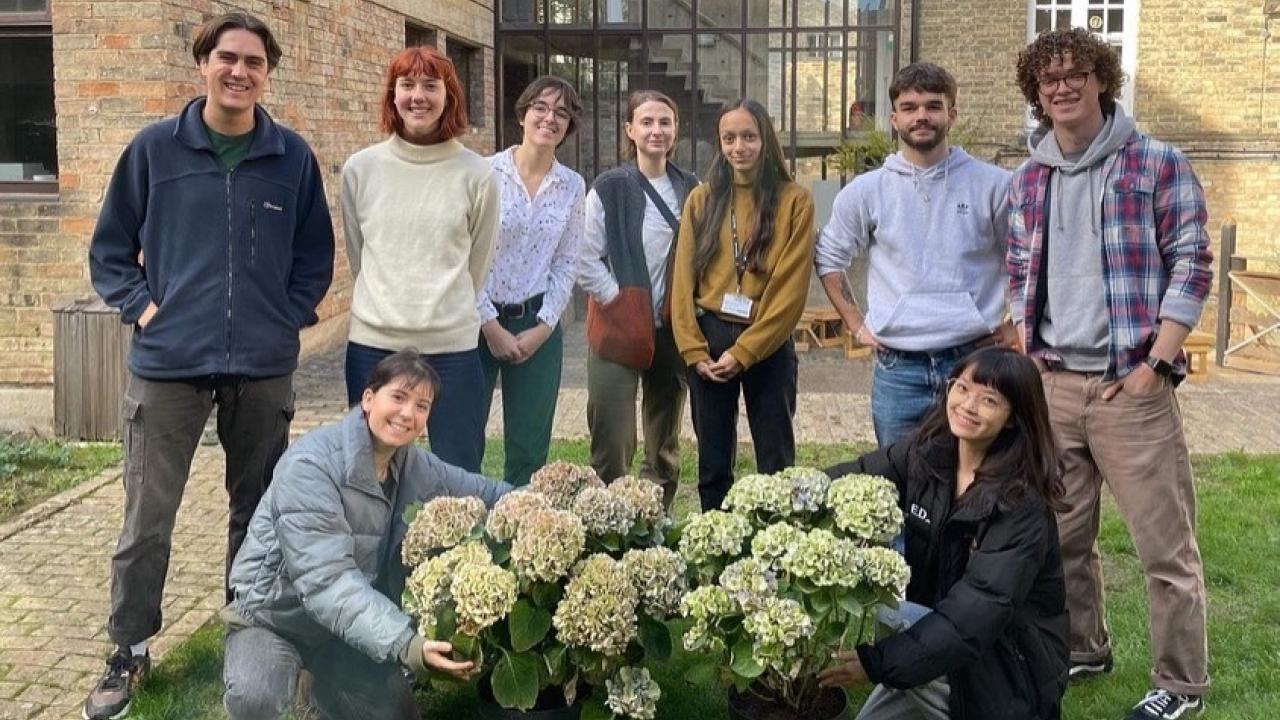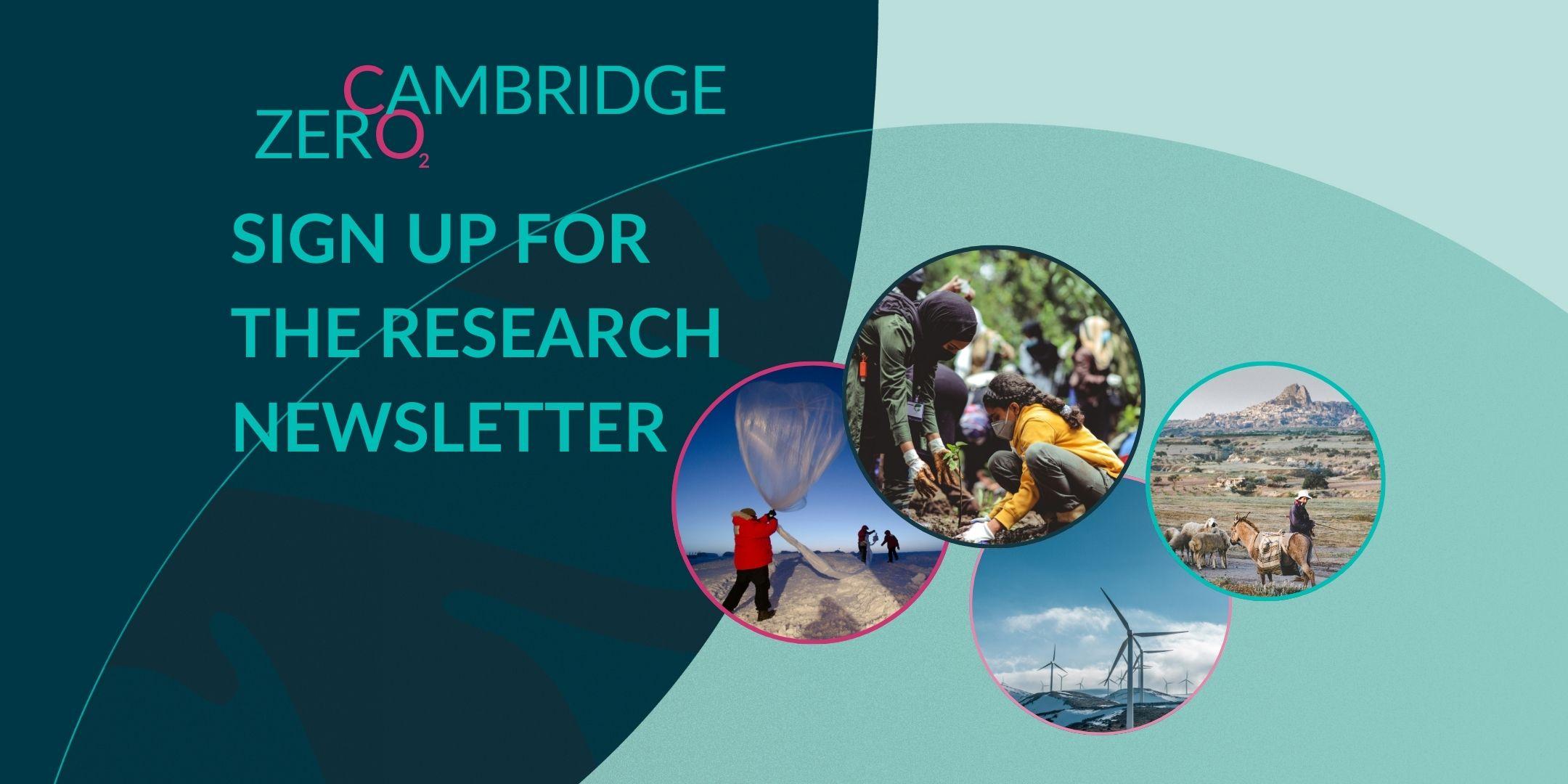Cambridge Zero is delighted to continue to offer the Student Societies Climate Fund for the 2023/2024 academic year.
The Student Societies Climate Fund is a termly funding call for all student societies and JCR/MCRs at the University of Cambridge to apply for a share of £1500, available termly, to fund climate-related projects and initiatives.
The Student Societies Climate Fund seeks to fund new projects and initiatives that aim to directly accelerate a transition to a zero-carbon world or support education that will enable this transition. Particularly attractive applications can demonstrate an impact on climate education, decarbonisation, greenhouse gas mitigation and/or sustainable enhancements to the student community.
Terms of Funding
-
Applications must be made by one of the following groups:
-
Official University societies registered with the Cambridge Students’ Union and Junior Proctor’s Office
-
Projects that have an official affiliation with a College JCR, MCR or student association
-
Groups can apply for up to £750 of funding out of a termly pot of £1500.
-
Applications must include a specific breakdown of proposed costs, including evidenced quotes.
-
Funds cannot be used as payment for labour. Funds can be used for purchase of equipment, items, prizes, travel, etc. We will accept applications that include catering costs, but we will not accept applications where the only cost is catering.
-
The aim of the fund is to catalyse climate action. The University cannot fund direct action against itself but welcomes applications for projects and initiatives that open up debate and conversation on relevant climate issues.
-
The fund aims to catalyse new projects and initiatives, not to fund the implementation of ongoing work.
-
Innovative and experimental approaches are strongly encouraged, but projects that are not explicitly innovative but can demonstrate clear impacts will still be considered.
-
Other avenues of funding must first have been explored before making an application to the Student Societies Climate Fund. Groups will be asked to indicate other funding avenues explored as part of their application.
-
If your funding application is successful, groups will be expected to:
-
Use the Cambridge Zero logo on any promotional or communications materials associated with the project
-
Provide regular updates to the Cambridge Zero team on the progress of the project
-
Complete a short impact report after the project is completed, detailing the impact of the funding
-
Funds can be claimed via an Expense Claim (Form FD1A for students (not paid via payroll)) or an Expense Advance (Form FD1B: Application for a sterling advance (PDF)). Groups will be asked to indicate in their application form how they would like to claim their expenses. For speed of transfer when receiving funds, an Expense Claim method will be used in the first instance. Please note that while Expense Advances will not be penalised, they are likely to incur a delay to due administrative requirements and this should be accounted for in the project implementation plan.
-
All expense forms must be submitted with sufficient time to be processed before the end of the University financial year on 31 July 2024. Expense Claims must be received by 17 July 2024.
-
Applications must be made by the advertised deadline (see below) for funding in the following term. Projects must be completed within the proposed term, otherwise they risk having their funding withdrawn. Project reports must be returned by the end of the following term.
Application Deadlines
Deadlines to apply for funding for the 2023/2024 academic year are:
-
Michaelmas Term (Tues 3 Oct – Fri 1 Dec) - Deadline: Monday 18 September 2023
-
Lent Term (Tues 16 Jan – Fri 15 Mar) - Deadline: Monday 11 December 2023
-
Easter Term (Tues 23 Apr – Fri 14 Jun) - Deadline: Monday 18 March 2024
Apply for Funding
To apply for funding, groups will need to complete this online form: https://forms.office.com/e/NpH8xu8zJv
The application form requires the following information:
-
Name of student group/society
-
Title of project
-
Value of funds requested
-
Short summary of proposed project
-
Implementation plan (including proposed timeline, location, logistical plans)
-
Envisaged impact of the project and how this impact will be measured (including an explanation of the potential for climate education, decarbonisation, greenhouse gas mitigation and/or sustainable enhancements to the student community).
-
Breakdown of the proposed costs including evidenced quotes
-
Other funding avenues explored
-
Any collaborations involved in your project (for example, other groups you might be working with, external partners, University departments, etc.)
-
Whether you would like to receive funds via an Expense Claim or and Expense Advance
If you have any questions about the Student Societies Climate Fund or the application process, please contact elizabeth.simpson@admin.cam.ac.uk
Evaluation Criteria
Applications will be scored by the Education Team at Cambridge Zero using the following criteria:
-
Feasibility of implementation plan (6 points)
-
Potential routes to mitigation AND/OR potential for social and educational impact (6 points)
-
Evidence of innovation AND/OR collaboration (6 points)
-
Breakdown of proposed costs including evidenced quotes (4 points)
-
Evidence of other funding avenues explored (2 points)
Total points: 24
Relevant criteria above will be scored between 1 and 6, where 1 is low and 6 is high:
6 – Significant potential, is compelling, relevant, specific and very convincing
5 – Shows potential, is relevant, specific and convincing
4 – Shows potential and relevance, but not entirely convincing or specific
3 – Some potential but has missing information and unsupported statements
2 – Limited potential, inaccuracies in parts and in need of more specificity
1 – Unconvincing, contradictory information, and missing critical information
Examples of Previously Funded Projects
The pilot of the Student Societies Climate Fund ran from Michaelmas 2022 to Michaelmas 2023 and successfully funded 13 projects led by student-groups for a total amount of just under £5000. This resulted in the creation of a number of new and impactful projects and initiatives, including, but not limited to:
-
Clare Hall Allotment Climate Initiative
-
Newnham JCR’s Climate Anxiety Workshop
-
Cambridge Hands on Science Summer Roadshow experiments



